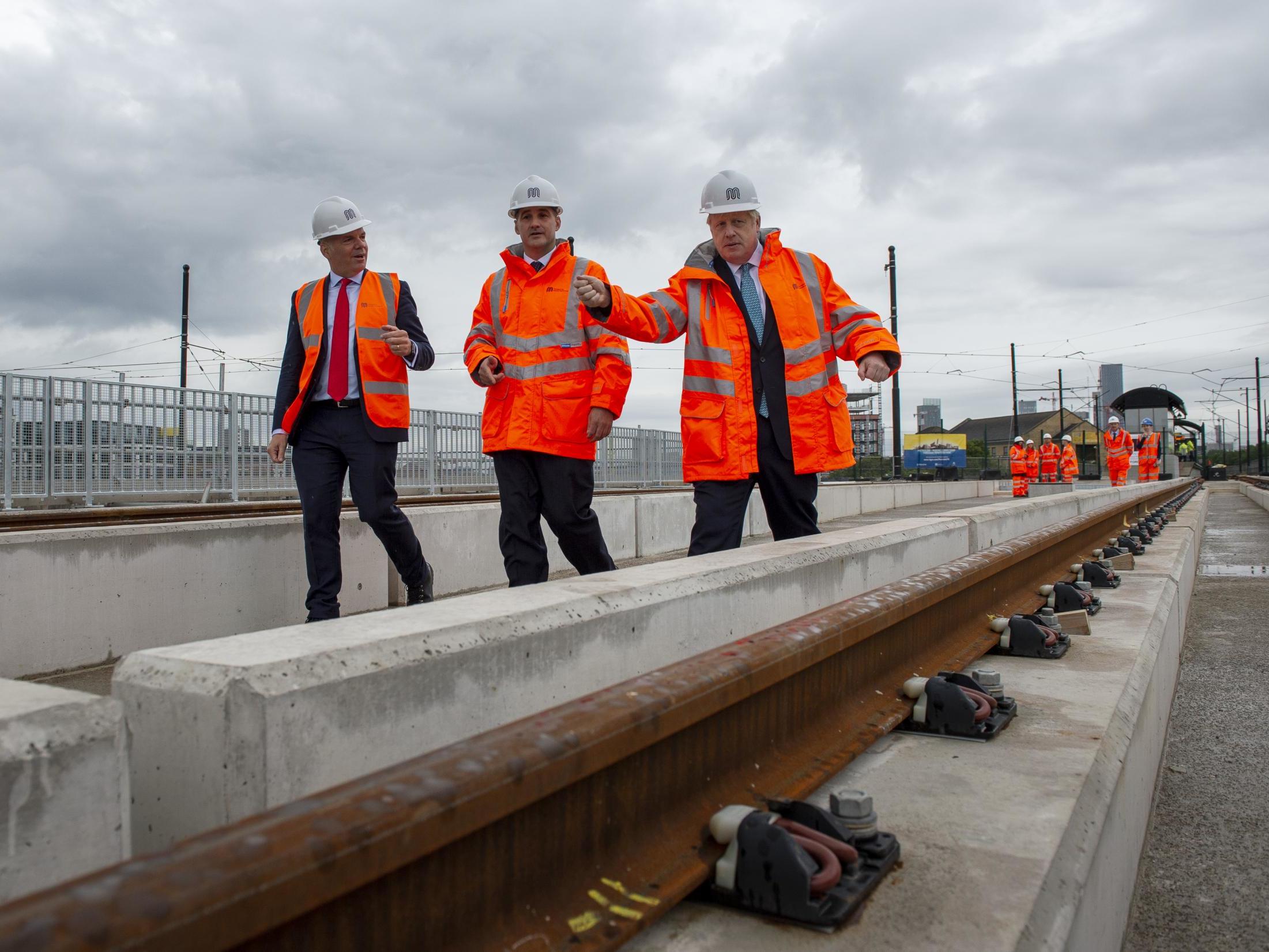A new Northern Powerhouse ‘growth board’ has to be about much more than railways and roads
Boris Johnson won the election thanks to the north, now he has to fulfil his promise – and that doesn’t mean just roads and train lines, writes Chris Blackhurst


There was no doubt after the general election who had delivered Boris Johnson his triumph. The people of the midlands and the north said they’d had enough, that they wanted change. They’d seen successive central administrations come up with nothing.
They signalled that they believed Johnson was listening to them and were impressed when he pledged he would take on board their grievances, so that finally, a government at Westminster would improve their lot.
A bargain was struck. They gave him their votes, now he has to deliver on his promise.
There are those who do not understand what is required where the revitalisation of the midlands and the north is concerned. They assume that all you have to do is to give Birmingham and the northwest HS2 and that will be enough. Some go further and chuck in some boosted trunk roads, more frequent and speedier buses and slicker urban rail links. Then they, too, stop. It’s all about transport infrastructure, they suppose, about making up for decades of underinvestment on tarmac and tracks, while all the cash went into the southeast. Reroute some of that money, they imagine, and the much vaunted “levelling up” will be achieved.
It won’t be. The need goes much deeper. In truth, the so-called connectivity gap is only one aspect of the weakness that has beset that part of the country which used to rely upon industry for its economic prosperity and social foundation.
Take the manufacturing and engineering away, which is what has occurred, and there is not much left. While other regions, notably the south and southeast, have powered on, others have stalled, and fallen behind.
Sure, in that context, the ability to move around has suffered. But it really is only one part of the problem. Lack of jobs, non-existent long-term prospects, young people not gaining the necessary qualifications and training, drift of talent southwards, demand for high quality social housing, no power to address local issues and decide how money is spent, weak health guidance and provision – these are the subjects that matter just as much. Good transport is important – its absence contributes to a sense of detachment and with that, abandonment – but it is not dominant.
Yet you could be forgiven for thinking the rebirth was all about boosting the rail and road networks. Transport improvement programmes are easily understood, by politicians and the media. They make for snappy, positive soundbites and readily grasped headlines, they’re schemes with a beginning and an end date, and the outcome is tangible. While the construction project is under way, as an extra benefit, they also employ lots of people.
It’s about ensuring the right skills are in place, that the north and the midlands have digital capability, that they get tech. It’s not a case of one size fits all
They’re necessary, no question, in regard to investment. No one wants to pour funds into a site in a part of the world that is difficult to reach. If the midlands and the north are going to attract new and larger employers, they must offer up-to-scratch, 21st century transport links.
The government, however, has to appreciate that better train and bus services and less crowded roads are not the be-all and end-all. It’s not why Boris surged to victory, not why the “Red Wall” opted for him. Here, the signs are encouraging. A new Northern Powerhouse “growth board” is reportedly being proposed, with Jim O’Neill – Lord O’Neill, the former Goldman Sachs economist and Treasury minister – touted as its chairman.
For watchers of the “levelling up” initiative, who have despaired that the drive might slow and even dip into abeyance, this is a welcome development. O’Neill steered the Northern Powerhouse under the chancellor George Osborne, then quit after Theresa May became prime minister because he felt she was less committed.
The growth board has to be about much more than railways and roads, vital as they are. It’s about ensuring the right skills are in place, that the north and the midlands have digital capability, that they get tech. It’s not a case of one size fits all. Specialisations that already exist, and are in demand elsewhere, should be fostered and built upon, to form clusters of excellence, spawning start-ups and spin-offs, and drawing investors. Talent must be retained, while new talent is attracted. Housing and health inequalities – the latter starkly highlighted in the pandemic – have to be reduced.
The new body with the mooted possibility of being led by a high-profile chairman, experienced in dealing with Whitehall, provides another fillip. Following the virus outbreak there was always the likelihood that levelling up would struggle. The Office for Budget Responsibility predicts that government borrowing will hit £298bn for the 2020-21 fiscal year – up from an estimate of £55bn before the lockdown was introduced. Against that backdrop it’s no surprise to learn that the Treasury is now questioning every pound of expenditure. Firmly in the bean counters’ sights was bound to be the billions earmarked for the midlands and the north.
There was every danger of the purse being reallocated or at the very least the sparking of disputes galore. A new economic growth board with a heavy-hitter chairman well versed in the Treasury’s thinking and ways ought to supply some comfort to those who believe Johnson will struggle to fulfil his promise.
Join our commenting forum
Join thought-provoking conversations, follow other Independent readers and see their replies
Comments